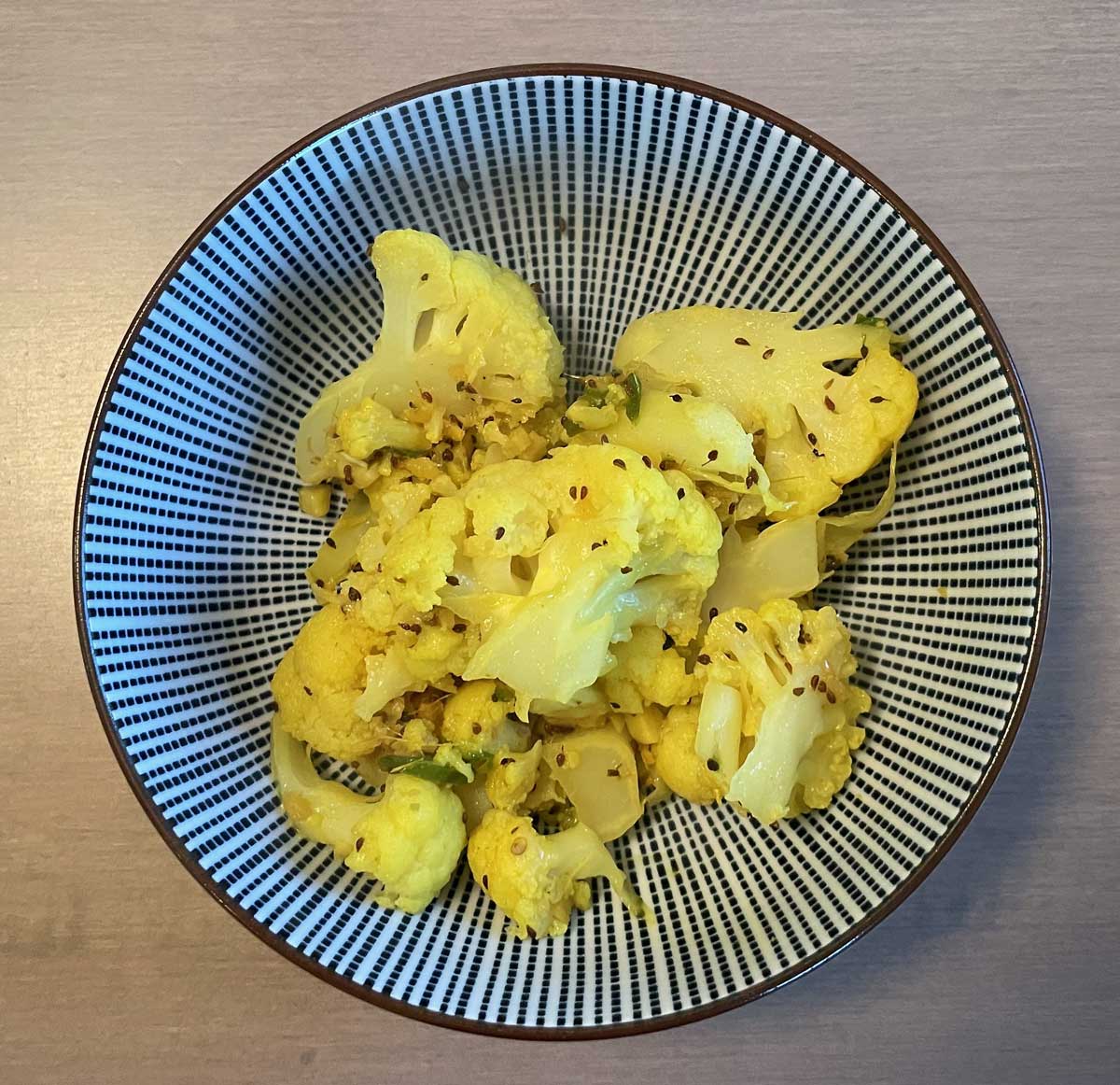Ashrams in India cater to hundreds, if not thousands, of people at a time, so I was very interested in knowing just what they served and if they had any underlying principles to guide their chefs.
Ashram foods, as I should have expected, differ from ashram to ashram. The Aurobindo Ashram has its headquarters in Pondicherry, in South India. I went to the very modern, beautifully designed branch in Delhi, which boasted a vast, all-granite, circular dining area, open to the skies in the center. Food is served from large pots set on tables at opposite ends of the room. All who wish may eat for free. There are signs, kindly reminders, everywhere: “Wasting Food is a Sin”; “Please Take Only as Much Food as You Need”; “Second Helpings Are Served with Pleasure.”
Stainless steel metal trays with depressions for each dish are neatly stacked, as are the metal tumblers for water. Guests have to wash them up after the meal and restack them.
The kitchen posts its all-vegetarian menus for lunch, tiffin (in this case, tea and snacks), and dinner on the walls. The foods are neither too spicy nor too oily. Red chilies are never used in the cooking; fresh green chilies are allowed. Eggs may not be used in the baking. They have wonderful eggless, coconut, and chocolate cakes. The inspiration for the dishes comes from all over India. When I was there for lunch, there were chapatis, lemon rice, and plain rice, as well as idlis (steamed rice cakes) for the starch; there were whole red lentils and yogurt for protein; potatoes, radishes, peas, cauliflower, and carrots were all cooked together; and there was a salad as well.
This cauliflower dish is based on an Aurobindo Ashram recipe. Ajowan seeds are rich in thymol, renowned for its medicinal properties, and impart a thyme-like flavor. All Indian grocers sell them.
SERVES 4
• 1 large head of cauliflower (about 1¾ lbs), broken into 2 × 2 inch florets (about 1 lb florets)
• 4 tablespoons olive or peanut oil
• 1 teaspoon ajowan seeds
• One 2-inch piece of fresh ginger, peeled and finely chopped
• 4 cloves garlic, peeled and finely chopped
• ½ teaspoon ground turmeric
• ½ teaspoon salt
• 1–3 fresh hot green chilies, cut crosswise into very thin slices
1. Wash the cauliflower and put the florets in a large bowl filled with water. Set aside for 10–30 minutes while you set out and/or prepare the other ingredients.
2. Put the oil into a very large frying pan set over medium heat. When hot, add the ajowan seeds. Stir a few times, then add the ginger and garlic. Stir for a minute and add the turmeric. Stir once, then quickly add all the cauliflower, scooping it up with both hands from the water with open fingers. Add the salt and green chilies, stir a few times, and cover. Cook on low heat, stirring now and then, for about 6–10 minutes or until the cauliflower is tender enough to break with your fingers.



